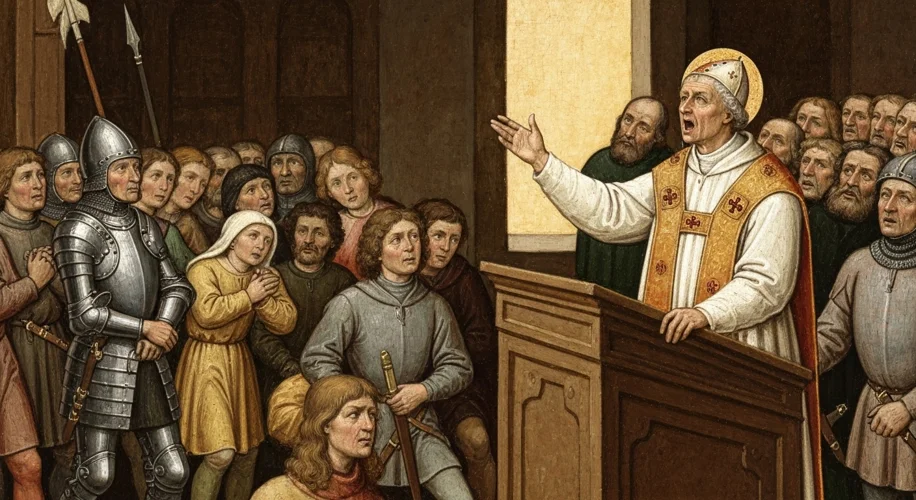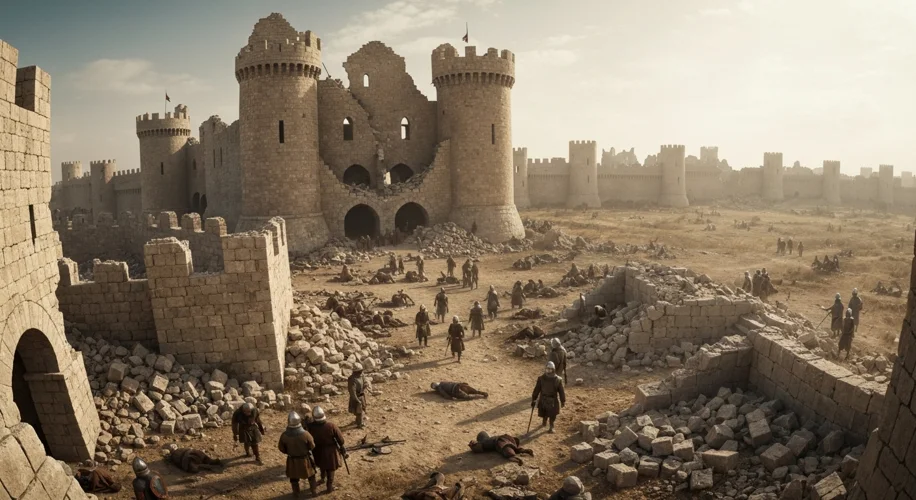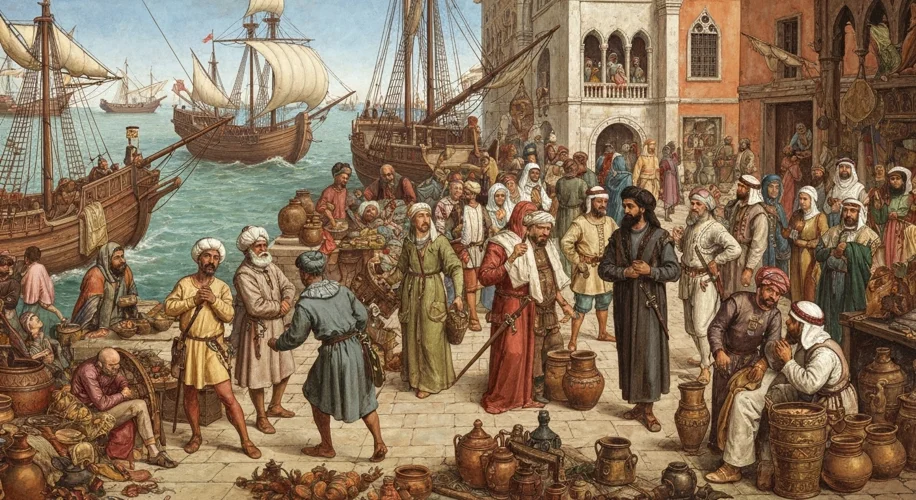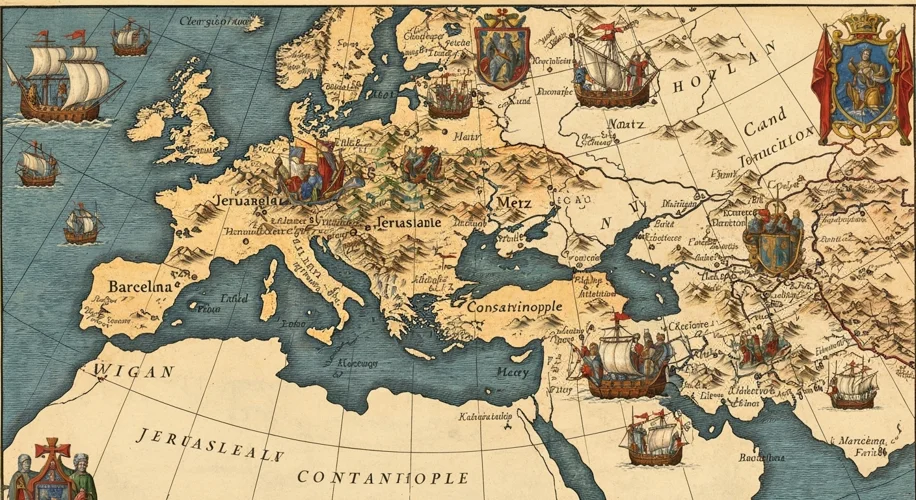In the tapestry of human history, few threads are as vibrant, complex, and often blood-soaked as the Crusades. For centuries, these monumental religious wars reshaped the maps of Europe and the Middle East, driven by fervent faith, political ambition, and the enduring allure of the Holy Land.
Imagine the year 1095. Europe is a patchwork of kingdoms, often squabbling, but united by a common Christian faith. News filters westward of the Seljuk Turks, a formidable Muslim power, encroaching upon lands once held by Byzantium and threatening Christian pilgrimage routes to Jerusalem. Emperor Alexios I Komnenos of Byzantium, facing this existential threat, appeals to Pope Urban II for help. What follows is a thunderclap that echoes through the ages.
At the Council of Clermont, Pope Urban II delivers a sermon that ignites a firestorm. He speaks of the desecration of holy sites, the suffering of Eastern Christians, and the spiritual rewards for those who take up the cross. His words are electrifying, painting a vision of reclaiming Jerusalem, the very birthplace of Christianity, from infidel hands. “Deus vult!” – “God wills it!” – becomes the rallying cry, a phrase that would galvanize hundreds of thousands across Europe.

The First Crusade (1096-1099) was a chaotic, often brutal affair. Bands of knights, peasants, and clergy, fueled by religious zeal and the promise of salvation, set out with a mix of unwavering faith and astonishing naivete. They faced famine, disease, and relentless battles. The journey was a crucible, testing the limits of human endurance. When they finally reached Jerusalem, their arrival was met with a ferocity that shocked even the hardened warriors.
The siege of Jerusalem in 1099 was a brutal climax. After a prolonged and desperate struggle, the Christian forces breached the city walls. The ensuing massacre of its inhabitants – Muslims and Jews alike – remains a grim testament to the zeal and brutality of the era. The Crusaders established the Kingdom of Jerusalem and other Crusader states, a fragile Christian presence in the heart of Muslim lands.
But the Holy Land was never truly secured. The subsequent Crusades, from the Second (1147-1149) to the Ninth (1271-1272), saw waves of European knights and armies converge on the East. Figures like Richard the Lionheart, Salah ad-Din (Saladin), and Louis IX of France became legends of this age. Saladin, the brilliant Muslim leader, recaptured Jerusalem in 1187, a blow that sent shockwaves through Christendom and spurred further Crusades.

The impact of the Crusades was profound and far-reaching. In the Middle East, they caused immense destruction and suffering, leaving a legacy of animosity that, in some ways, endures. Yet, they also fostered unprecedented cultural and economic exchange. European contact with the sophisticated societies of the East introduced new ideas, technologies, and goods to the West. Advances in architecture, navigation, mathematics, and medicine flowed back to Europe, helping to fuel its own Renaissance.
Trade routes expanded, with Italian city-states like Venice and Genoa growing immensely wealthy from supplying and transporting Crusader armies and later, trading with the East. The demand for Eastern luxuries like spices, silks, and sugar stimulated European economies. The Crusades also inadvertently strengthened the power of monarchs and the Church in Europe, as they levied taxes and gathered armies for these grand expeditions.

Looking back, the Crusades were more than just a series of military campaigns. They were a complex phenomenon, driven by a potent mix of religious devotion, political maneuvering, economic incentives, and sheer human ambition. They reveal much about the medieval mindset, the clash of civilizations, and the enduring quest for meaning and territory. While the initial goal of permanent Christian control over the Holy Land ultimately failed, the echoes of the Crusades – in terms of religious relations, cultural exchange, and the very memory of conflict – continue to resonate even today, reminding us of the intricate, often brutal, ways history is forged.

